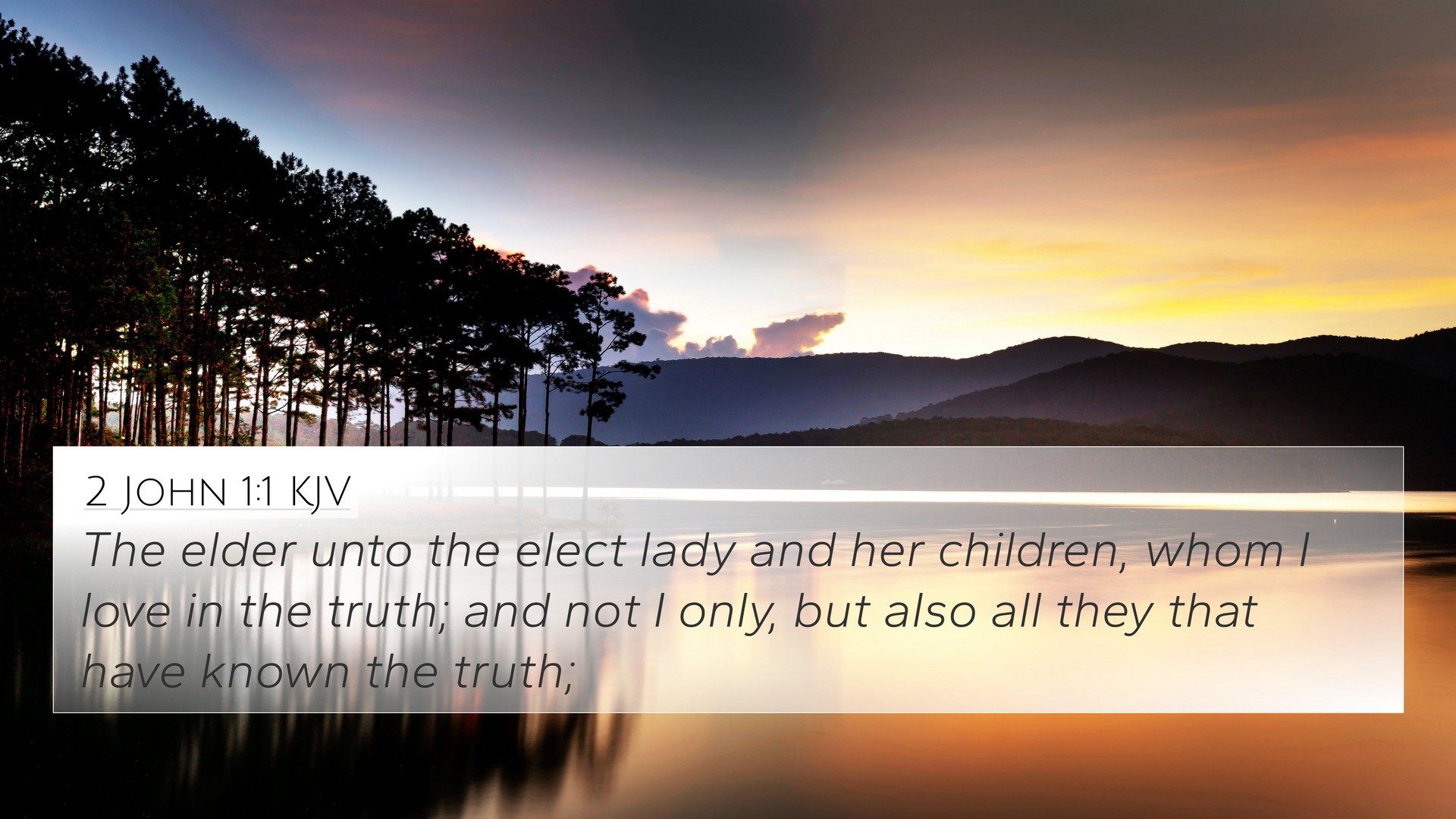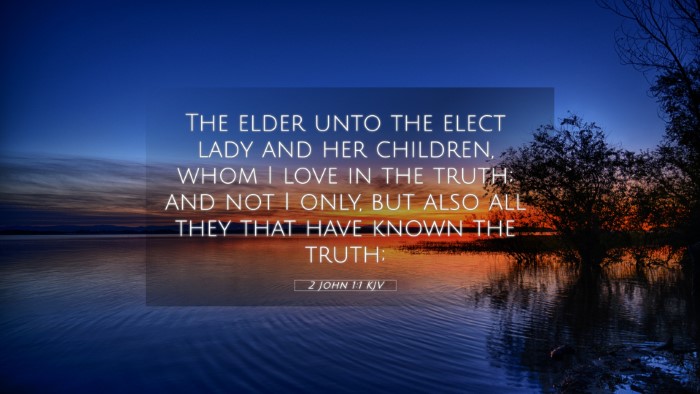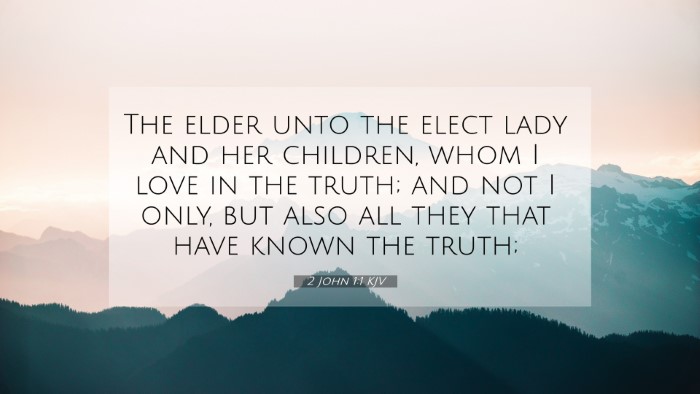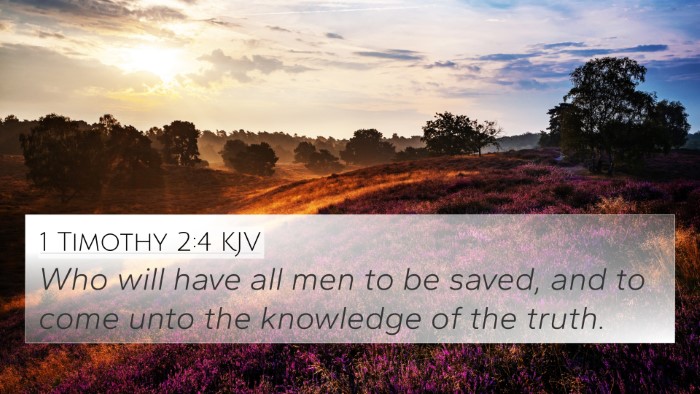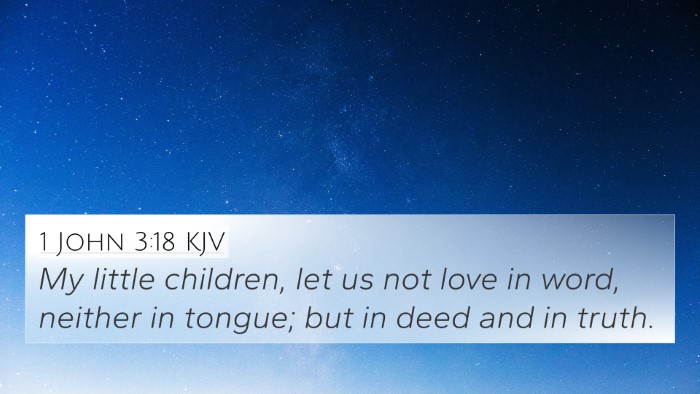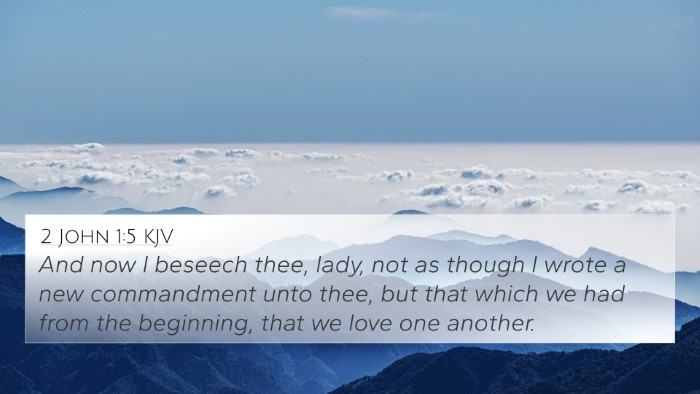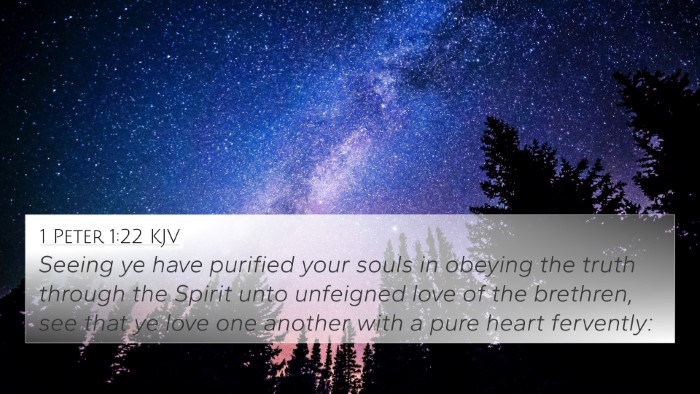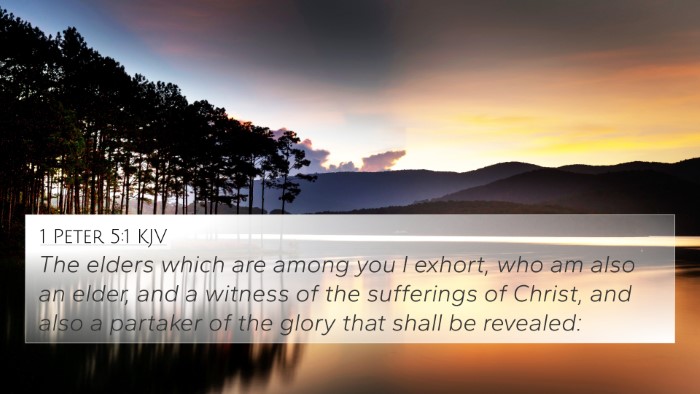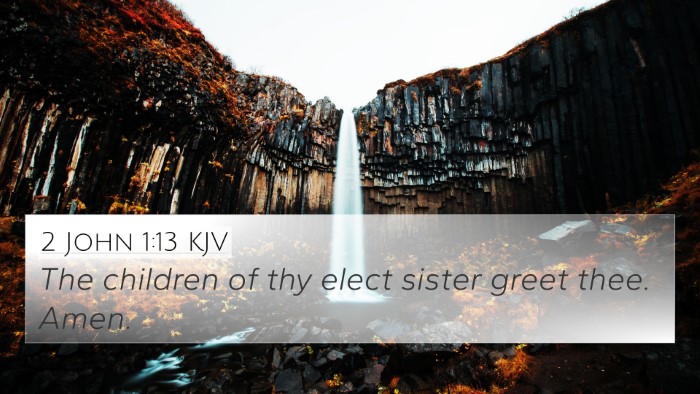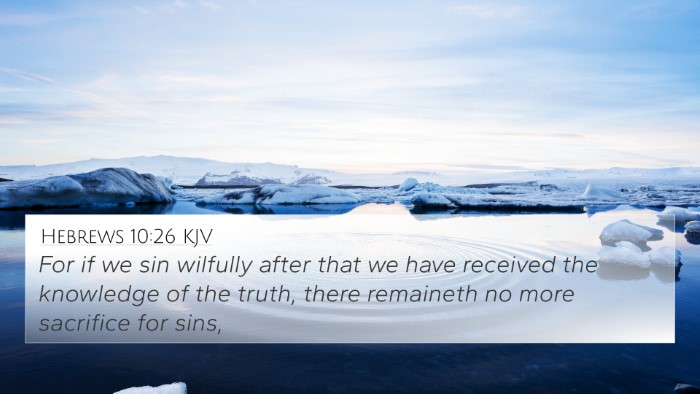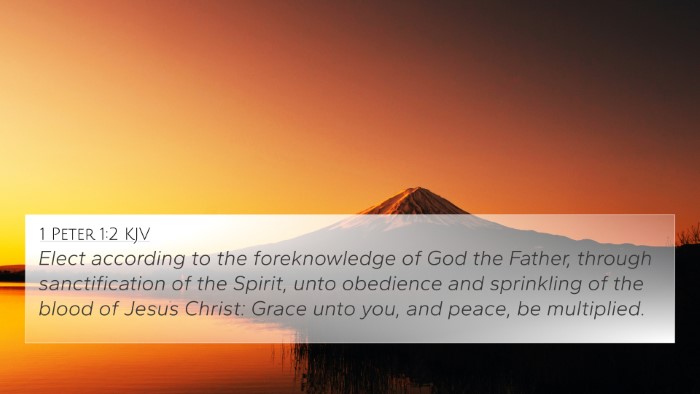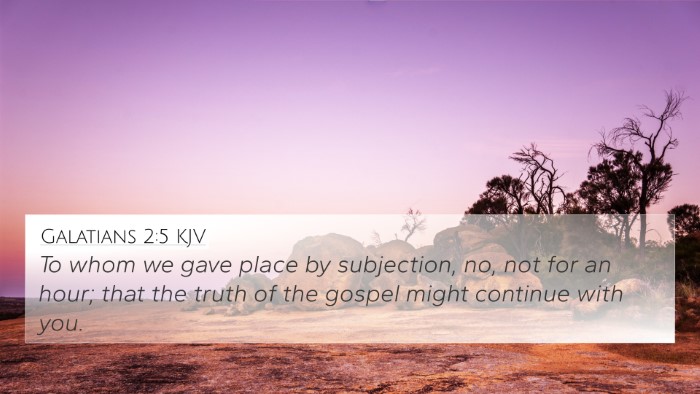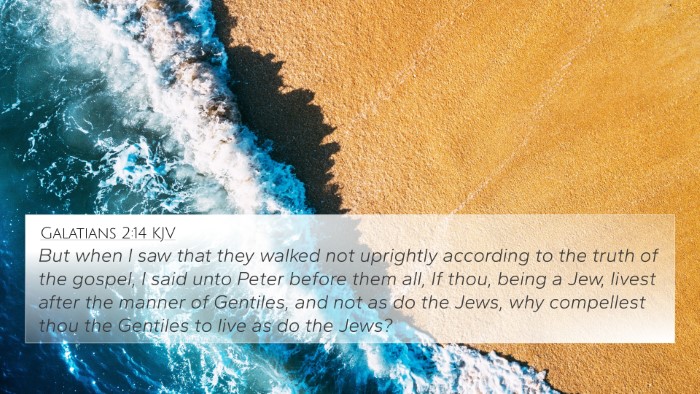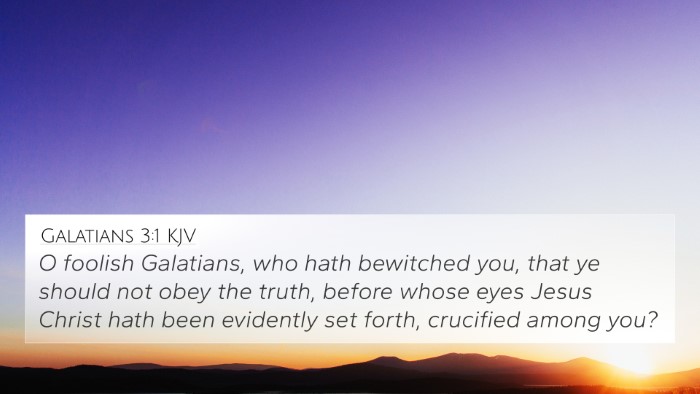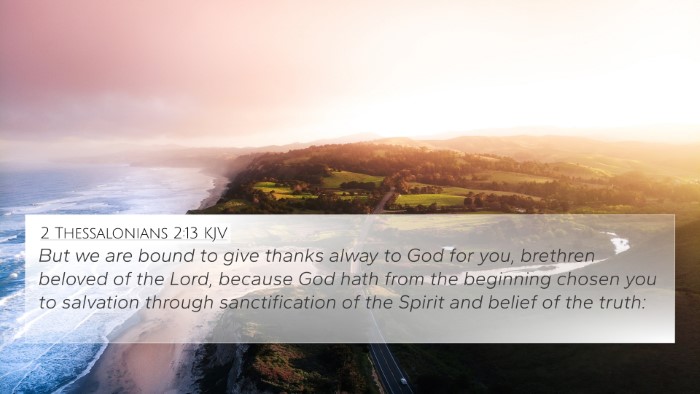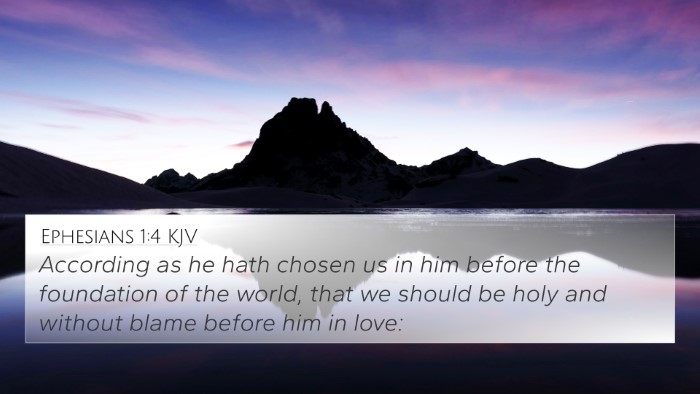Understanding 2 John 1:1
2 John 1:1 states, “The elder unto the elect lady and her children, whom I love in the truth; and not I only, but also all they that have known the truth.” This verse serves as both a greeting and an introduction to the Apostle John's message to a chosen woman and her children, emphasizing love grounded in truth.
Context and Interpretation:
This verse is part of John's shorter epistles, which focus on maintaining the purity of the Christian message and the importance of truth and love. The identity of the “elect lady” has been the subject of various interpretations, with some scholars proposing it refers to a specific individual and others suggesting it symbolizes a church or community.
- Matthew Henry's Commentary: Henry emphasizes the affectionate tone John employs, highlighting that the elder (John) is reaching out to those he loves, not for his own sake, but because of their shared commitment to truth.
- Albert Barnes's Notes: Barnes notes that the reference to “truth” embodies both the knowledge of Christ and the adherence to his teachings, suggesting a call to recognize and cling to sound doctrine amidst potential false teachings.
- Adam Clarke's Commentary: Clarke discusses the duality of election and love, expressing that being 'chosen' should lead one to a lifestyle reflecting that love in their actions and community.
Thematic Insights:
This verse introduces key themes in the epistle: love and truth. The intertwining of these concepts suggests that genuine Christian love is always accompanied by a commitment to truth, reflecting a deep spiritual relationship characterized by mutual understanding and encouragement in faith.
Cross-Referencing Biblical Texts:
Several biblical texts resonate with the themes here and provide a broader understanding of the connections between scriptures:
- John 13:34-35: "A new commandment I give unto you, That ye love one another; as I have loved you, that ye also love one another.” This mirrors the essence of love that John discusses in his epistle.
- 1 John 4:7: "Beloved, let us love one another: for love is of God; and every one that loveth is born of God, and knoweth God." This verse emphasizes that true love is sourced in God, reinforcing John's message about love and truth.
- 2 John 1:4: John expresses joy in finding some of his readers walking in truth, drawing attention to the communal aspect of faith.
- Romans 16:17-18: Paul warns against those who cause divisions contrary to the doctrine which believers have learned, highlighting the importance of adhering to the truth.
- Colossians 3:14: “And above all these things put on charity, which is the bond of perfectness.” This verse ties into the concept of love as essential to the Christian community.
- 1 Peter 1:22: “Seeing ye have purified your souls in obeying the truth through the Spirit, unto unfeigned love of the brethren…” reinforces the belief that truth is foundational for love among believers.
- John 8:32: “And ye shall know the truth, and the truth shall make you free.” This highlights the liberating nature of grasping the truth, as articulated in John’s epistles.
Application and Conclusion:
In today’s context, 2 John 1:1 is a reminder for believers to maintain love and truth in their relationships and communities. This verse’s central message encourages Christians to deepen their understanding of truth as it relates to their faith and how it should manifest in love towards one another. By examining related scriptures, believers can better grasp the interconnected nature of truth and love throughout the Bible.
Tools for Bible Cross-Referencing:
Utilizing a Bible concordance or a cross-reference Bible study can help readers find deeper connections between verses, such as those noted above, enhancing their understanding of biblical themes and teachings. Understanding the connections between Bible verses enables Christians to engage more fully with Scripture, fostering a rich, contextual approach to Bible study.
Whether conducting a comparative Bible verse analysis or searching for Bible verses that relate to each other, the inter-Biblical dialogue illuminated by 2 John 1:1 serves as an essential foundation for developing a comprehensive understanding of Christian doctrine and community.
